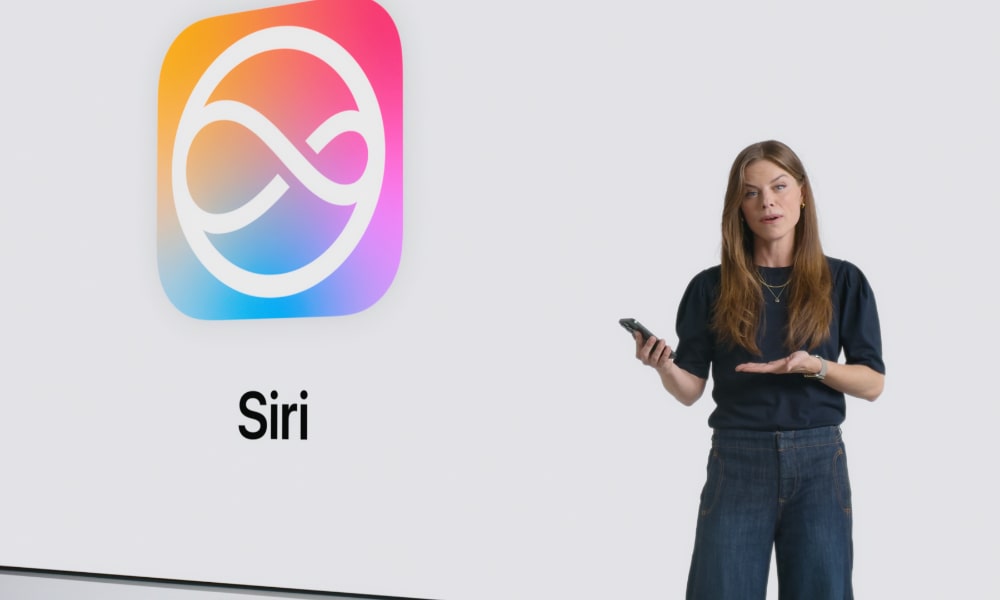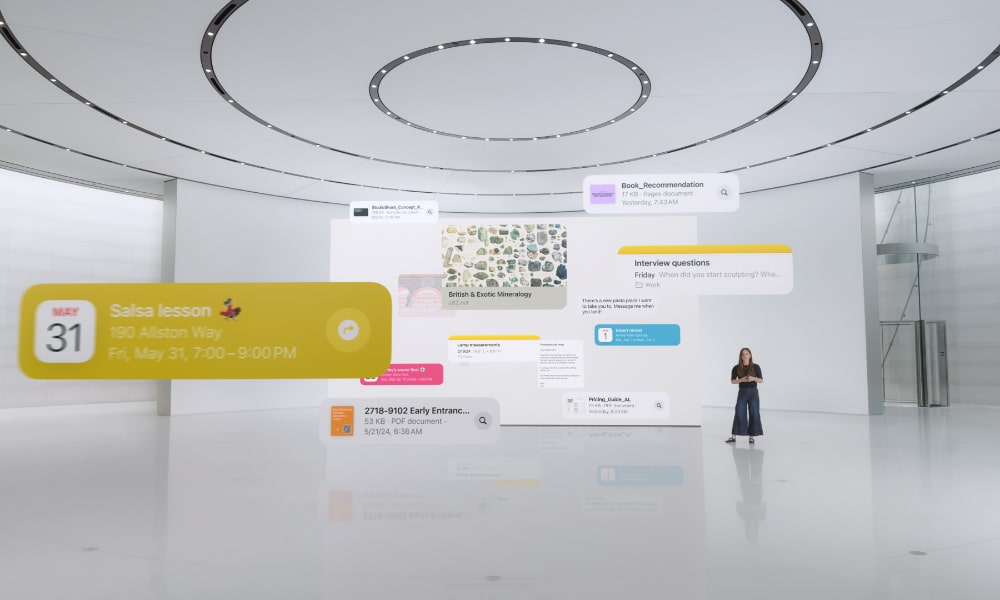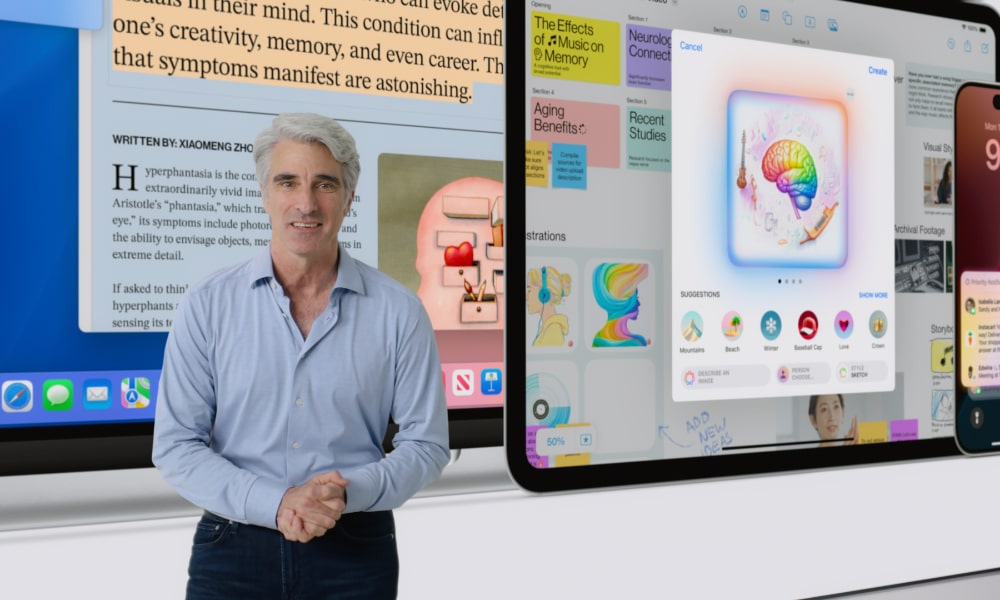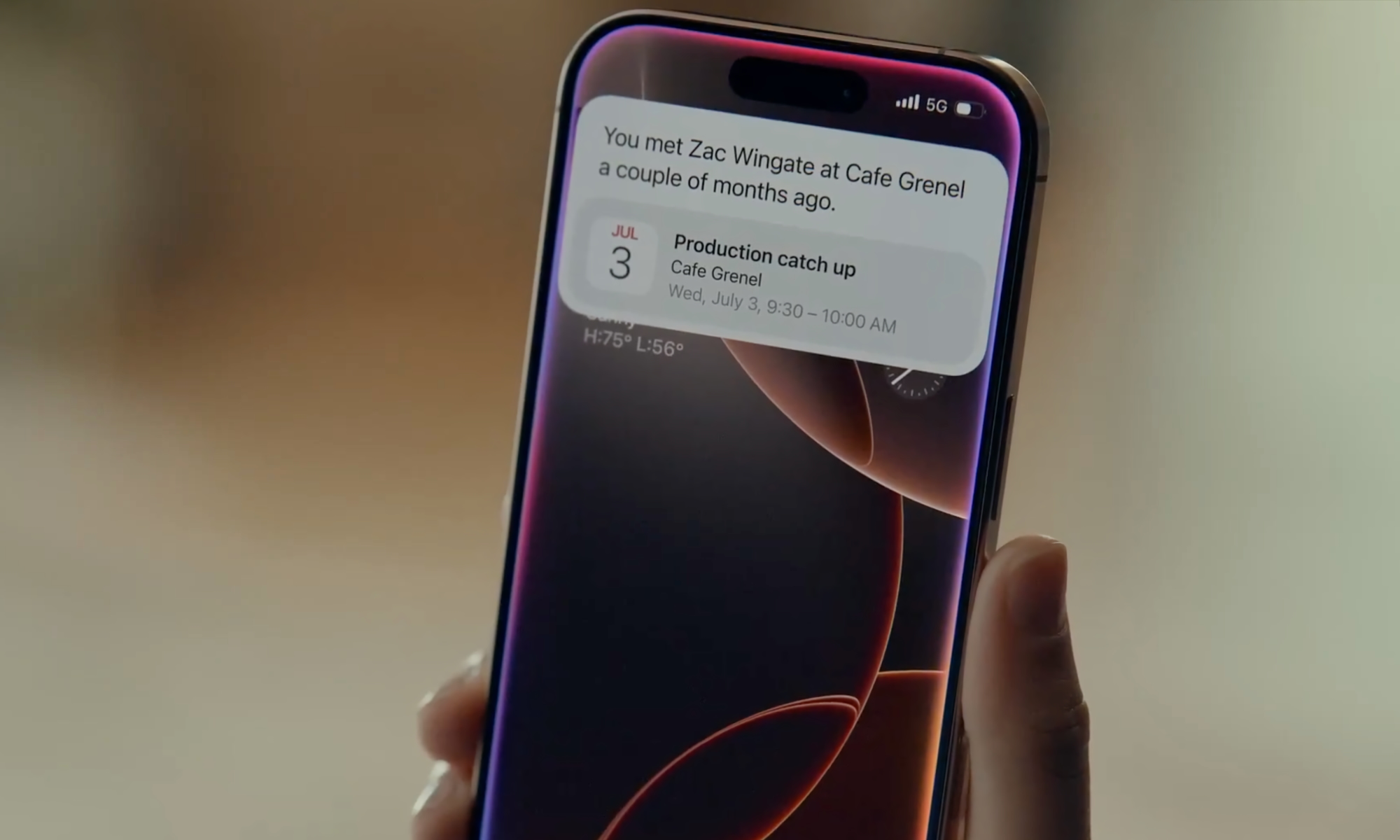Don’t Expect to Hear Much About Siri at This Year’s WWDC

Toggle Dark Mode
During its 2024 Worldwide Developers Conference (WWDC) keynote, Apple gave us a glimmer of hope that our long Siri nightmare might soon come to an end. The debut of Apple Intelligence — what the company called “AI for the rest of us” — included the promise that Siri would get much more intelligent.
According to Apple’s presentation, Siri would not only be better able to understand us but also gain the ability to delve into the information on our devices to get “personal context.” This would transform Siri from a glorified voice control system into a true digital assistant. As Apple demonstrated, you’d be able to ask Siri questions like “What time does my mom’s flight land?” and it’d be able to retrieve all the necessary information from your calendar, email, flight tracking websites, and more to provide a straightforward answer.
While there was more to Apple Intelligence than just Siri improvements, the personal context was the most promising — and also the most challenging — of the new features. Only days after WWDC, Bloomberg’s Mark Gurman was told by his inside sources that Siri’s real improvements wouldn’t show up until iOS 18.4.

Sadly, like a storm before the calm, Siri got a lot worse in iOS 18. Apple’s decision to meld Siri with ChatGPT in iOS 18.2 created an odd Frankensteinian combination where Siri, by itself, began offering up answers that were just plain wrong. It’s not that Siri was ever particularly intelligent in terms of world knowledge, but before iOS 18 came along, it would usually admit it didn’t know something and offer to search the web for you. With the advent of ChatGPT integration, Siri was supposed to begin redirecting those requests to OpenAI’s much more capable chatbot. Nevertheless, it seemed to try and answer many on its own without the proper knowledge to provide accurate answers.
On its own, ChatGPT is brilliant. By itself, Siri is dumb, but it knows it. However, putting the two together has resulted in a digital version of the Dunning-Kruger effect.
That was bad enough, but it got worse. The promise of the more personal Siri in iOS 18.4 meant that things would surely soon improve. Sadly, following a mid-February report that Apple was having trouble smartening up Siri and might be pushing it off until at least iOS 18.5, Apple gave us an official word that it wasn’t going to make the cut for iOS 18-dot-anything.
“It’s going to take us longer than we thought to deliver on these features, and we anticipate rolling them out in the coming year,” Apple spokesperson Jacqueline Roy said in a statement to Daring Fireball’s John Gruber. In “OS product years,” that effectively means iOS 19.
Some hoped that meant iOS 19.0 in September, but more pragmatic individuals said we’d be looking at 2026 — possibly slated for iOS 19.4 the same way these were once targeted for iOS 18.4. Apple had already planned a more conversational Siri for early 2026. Still, Gurman suggests that this has been pushed back to 2027 to make room for the personalization improvements that Apple has yet to deliver.
Over the weekend, Gurman confirmed Siri is nowhere near ready for Apple’s WWDC 2025 keynote on June 9.
The new Siri won’t be out in time for next month’s WWDC, a year after the upgrade was first announced. Instead of getting an overhauled assistant — let alone a full-fledged ChatGPT competitor, as many rivals have released — users will have to be satisfied with promises of further Apple Intelligence deployment.
Mark Gurman and Drake Bennett
With only three weeks to go until the big event, that means it’s likely we won’t hear much of anything about Siri improvements. Even if Apple hopes to have them ready during the iOS 19 lifecycle, it’s likely a bit gun shy after last year’s announcement turned out to be effectively vaporware. “The WWDC demos were videos of an early prototype, portraying what the company thought the system would be able to consistently achieve,” Gurman reports.
Lagging Behind the Curve

This also reflects a lack of confidence in its ability to deliver on this promise. Senior members of Apple’s AI team told Bloomberg that the situation is a “crisis” and a ship that’s been “sinking for a long time.”
Ironically, Apple has fallen behind the curve on AI for many of the same reasons that Blackberry became an industry punchline: senior executives who lacked the vision to see where the puck was going to end up. In BlackBerry’s case, it was the notion that corporate customers would never allow folks to use devices like iPhones; in Apple’s, it was the idea that AI should be taken seriously.
While Apple CEO Tim Cook reportedly pushed hard for AI development within the company, he’s also a logistics guy who is known for keeping his distance from product development, preferring to leave that in the hands of more talented designers and engineers.
It was a significant departure from Steve Jobs’ much more hands-on approach, and it’s likely what led to Siri floundering for years in the first place. The voice assistance was acquired under Jobs and became a pet project of the late co-founder and CEO and his senior software chief, Scott Forstall. However, after Jobs’ untimely death, Forstall was eventually pushed out of Apple, and the reigns of software engineering were handed to Craig Federighi. In that shuffle, Siri left the software portfolio and ended up as a “service” under Eddy Cue, whose department already had a full plate launching Apple Music and the company’s other customer-facing media services.
Apple executives who worked for and with Federighi reported being unable to convince the senior VP that AI should be taken seriously. “A lot of it fell on deaf ears,” they told Bloomberg. It was Apple’s automotive ambitions that eventually jump-started AI within the company, leading to the hiring of Google AI chief John Giannandrea to head up a new Machine Learning and AI Strategy division.
However, while Giannandrea managed to get a sizeable enough budget to hire some top AI researchers, he was reportedly skeptical of the Apple Car and often found his efforts stymied by Federighi, who recommended against making large investments in AI, and most definitely didn’t want his software engineering teams distracted from developing what he felt were far more important updates to iOS, iPadOS, and macOS.
It also didn’t help that Apple’s culture isn’t well-suited to building products without understanding the results they will yield — and that’s just not how AI works. It wasn’t until after ChatGPT landed in late 2022 and Federighi tried using it to write code for a personal software project that he saw the light and realized that it was time for Apple to get with the program. By that time, Apple was starting from behind and was forced to rush to pack as many AI-powered features into iOS 18 as possible, with obviously limited success.
What’s in iOS 18 today works reasonably well. It’s far from groundbreaking, but the tight system-level integration of things like Writing Tools makes them more useful than standalone AI apps and online services like ChatGPT and Gemini. Image Playground and Genmoji are little more than fun toys that have seen their novelty wear off about as fast as Animoji did years ago on the iPhone X. Notification summaries have become a mixed bag, and Apple was forced to turn them off for some apps in iOS 18.3 after Apple’s AI models falsely summarized some news headlines. These have yet to be re-enabled.
With struggles like those, it’s no surprise that a more personalized Siri poses even greater challenges. “There are hundreds of bugs right now,” one member of the Siri group told Bloomberg. “It’s whack-a-mole. You fix one issue, and three more crop up.”
[The information provided in this article has NOT been confirmed by Apple and may be speculation. Provided details may not be factual. Take all rumors, tech or otherwise, with a grain of salt.]









